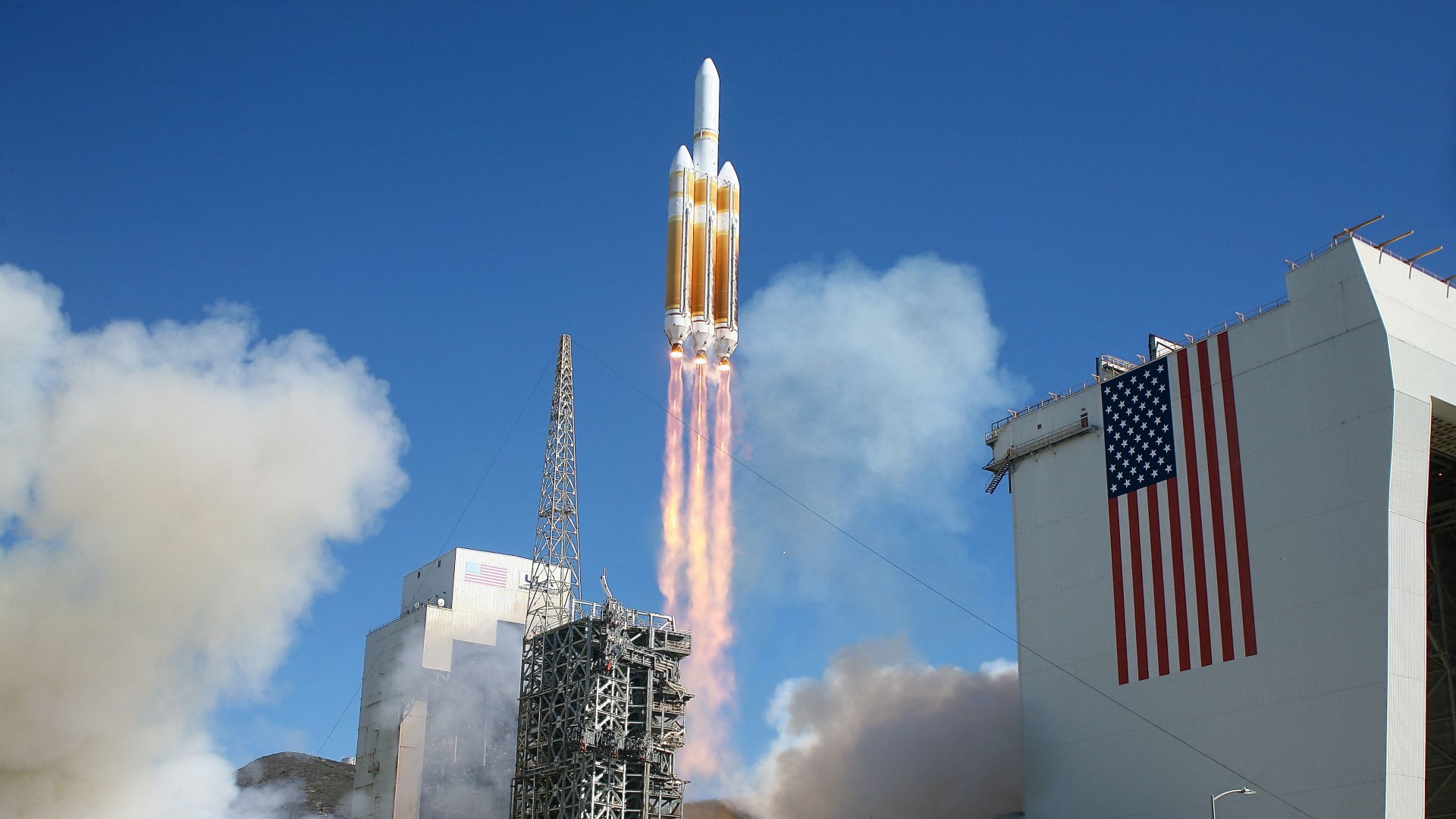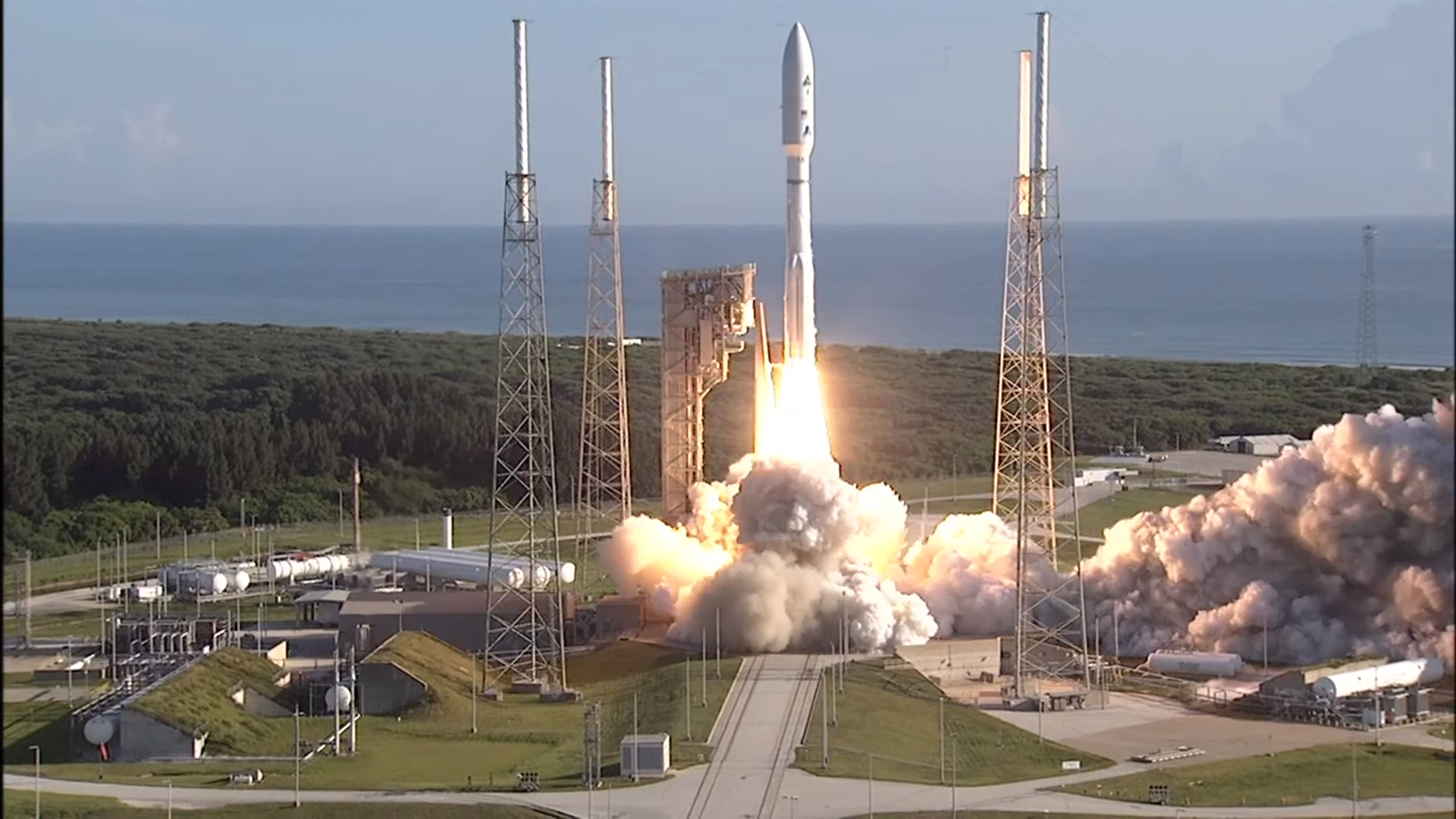Pentagon moves to declassify some secret space programs and technologies
Some officials at the Pentagon have been calling for such a new classification policy for years.

The United States Department of Defense (DoD) wants to declassify more space programs in order to boost the nation's military edge in space.
As the world's superpowers continue to invest in the militarization of space, some leaders at the Pentagon believe it's time to declassify some of the secretive space programs in the United States' portfolio. To that end, U.S. Deputy Secretary of Defense Kathleen Hicks recently approved a new policy that will reduce the classification level of some highly secret space programs and technologies.
The policies that have prohibited sharing this information are outdated and are holding back the U.S. when it comes to superiority in space, according to DoD Assistant Secretary for Space Policy John Plumb. "What the classification memo does, generally, is it overwrites — it really completely rewrites — a legacy document that had its roots 20 years ago, and it's just no longer applicable to the current environment that involves national security space," Plumb said last week, according to Breaking Defense.
The policy does not mean that these programs and technologies will now be fully unclassified and revealed to the public; instead, it will lower their classification levels in order to share some technologies and programs with private industry and international allies to help the U.S. build an "asymmetric advantage and force multiplier that neither China nor Russia could ever hope to match," Plumb said in a DoD statement.
Related: Space is now 'most essential' domain for US military, Pentagon says
The move would allow each branch of the U.S. armed services to decide their own classification levels, rather than spread a blanket DoD policy over all military space programs and technologies.
One of the key issues driving this policy change is the use of what are known as Special Access Programs (SAPs), security protocols that severely restrict the sharing of highly sensitive and classified information. Some of these SAPs are acknowledged, meaning their existence is known to the public but their details haven't been revealed. Others, however, are unacknowledged, meaning their mere existence is even a secret.
Breaking space news, the latest updates on rocket launches, skywatching events and more!
Plumb argued that the new policy will remove SAP status from some of the Pentagon's most valuable space programs, giving the U.S. military an edge in what the Department of Defense now considers the "most essential domain" in terms of national security.
"Anything we can bring from a SAP level to a Top Secret level for example, brings massive value to the warfighter, massive value to the department, and frankly, my hope is over time [it] will also allow us to share more information with allies and partners that they might not currently be able to share," Plumb said.
Some officials at the Pentagon have been calling for such a new classification policy for years, arguing that excessive classification has prevented advanced military capabilities from deterring attacks from adversaries, which is one of the main reasons they were created to begin with.
In a rare show of disclosure, the U.S. Space Force and National Reconnaissance Office revealed a set of general capabilities of the Silent Barker "watchdog" satellite launched by United Launch Alliance in September 2023.
Before the launch, NRO and Space Force officials told the public that Silent Barker was designed to keep an eye on satellites and spacecraft in geosynchronous orbit (GEO). The disclosure was designed to help deter attacks on U.S. satellites, Space Force Lt. General Michael Guetlein, commander of Space Systems Command, said at the time.
"Not only are we going to maintain custody and the ability to detect what's going on in GEO, but we'll have the indications and warnings to know there's something out of the normal occurring, and that goes a long way towards deterrence," Guetlein said.
The exact capabilities and specifications of many of the U.S. military's and intelligence community's satellites remain unknown.

Brett is curious about emerging aerospace technologies, alternative launch concepts, military space developments and uncrewed aircraft systems. Brett's work has appeared on Scientific American, The War Zone, Popular Science, the History Channel, Science Discovery and more. Brett has degrees from Clemson University and the University of North Carolina at Charlotte. In his free time, Brett enjoys skywatching throughout the dark skies of the Appalachian mountains.

